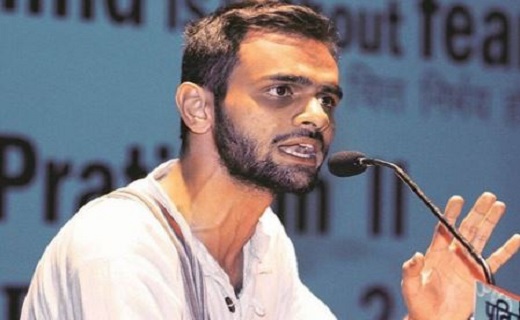In January 2020, Umar Khalid introduced himself as an “unemployed 32-year-old Indian” with a distinguished doctorate focusing on indigenous people from a prestigious university. An advocate for radical democracy, Khalid emphasized the need for democracy to extend beyond voting and manifest in everyday life. Little did he know that his journey would take a tumultuous turn, marking him as a prominent figure in India’s socio-political landscape.
The Sedition Charges and the JNU Protest
Umar Khalid first gained national attention in 2016 when he, along with four other Indian students, faced sedition charges for organizing a protest at Delhi’s Jawaharlal Nehru University (JNU). The protest centered around the 2013 hanging of a Kashmiri man. Despite surrendering to the police and later being granted bail, Khalid’s ideological stance and activism became a focal point in the ongoing debate about nationalism and dissent.
Clash with the Colonial Sedition Law
In a significant turn of events in 2022, the Supreme Court temporarily suspended the colonial-era sedition law, under which Khalid had been charged. The court directed the government to halt all trials until the law’s validity was conclusively determined. This move marked a critical juncture in Khalid’s legal battles and raised questions about the broader implications of such laws on free expression.
Arrest Amidst Delhi Riots
The year 2020 brought a fresh set of challenges for Khalid as he found himself arrested again, accused of being a “key conspirator” in violent clashes in Delhi that resulted in the deaths of 53 people, primarily Muslims. The February riots occurred amid massive protests against a contentious citizenship law, adding complexity to Khalid’s case.

Legal Wrangling and the Unlawful Activities (Prevention) Act (UAPA)
Umar Khalid’s legal saga took a dark turn as he faced prolonged incarceration under the Unlawful Activities (Prevention) Act (UAPA), a stringent anti-terror law known for making bail exceptionally challenging. Denied bail twice, Khalid’s lawyers sought relief from the Supreme Court. However, a series of delays and changes in the bench overseeing the case extended the legal limbo.
Examining the Charges: Weak Evidence and Legal Commentary
Legal commentators have scrutinized the evidence presented against Khalid, deeming it “weak.” A report in October 2022, authored by a former Supreme Court judge and retired high court judges, found no substantial evidence to support terrorism charges. The report highlighted inconsistencies in police claims and raised concerns about potentially fabricated witness statements, challenging the prosecution’s narrative.
Amnesty International’s Perspective
Amnesty International weighed in on Khalid’s case, emphasizing that denying him bail struck a blow to free expression and peaceful assembly in India. The rights group warned of a shrinking space for critical voices, setting a chilling precedent for dissenting views. Khalid’s case became emblematic of the challenges activists face in navigating a landscape where dissent is increasingly stifled.
Life Behind Bars: Khalid’s Resilience
Despite the legal turmoil, Umar Khalid has shown resilience behind bars. Languishing in a maximum-security prison, he immerses himself in voracious reading, supports fellow prisoners with written applications, and finds solace in watching cricket on TV. Aiming to document his experience, Khalid diligently writes, creating a prison diary that has garnered interest from publishers.
Family and Support: A Glimmer of Hope
Khalid’s family, permitted a brief video call each week and occasional physical visits, remains a pillar of support. His father, a former editor of an Urdu newspaper, launched a small political party, while his mother, a former doctor, runs a boutique. In a momentary respite, Khalid was granted temporary bail in July 2022 to attend his sister’s wedding, offering a fleeting sense of normalcy amidst legal battles.
Love in Detainment: Banojyotsna Lahiri’s Perspective
Banojyotsna Lahiri, Khalid’s long-time partner, sheds light on their unique relationship. Despite being physically separated, they maintain their connection across a glass partition during prison visits, often talking on the intercom. Lahiri’s visits bring with them a curated selection of books, adding to the approximately 200 Khalid has devoured during his incarceration.
Conclusion: A Continuing Struggle
Umar Khalid’s journey is emblematic of the intricate interplay between activism, dissent, and the legal system. As his case continues, it not only raises questions about the state of democracy and free expression in India but also underscores the personal toll on individuals dedicated to challenging the status quo. In the face of adversity, Khalid remains resolute, navigating the complexities of a legal system that tests the limits of justice.
